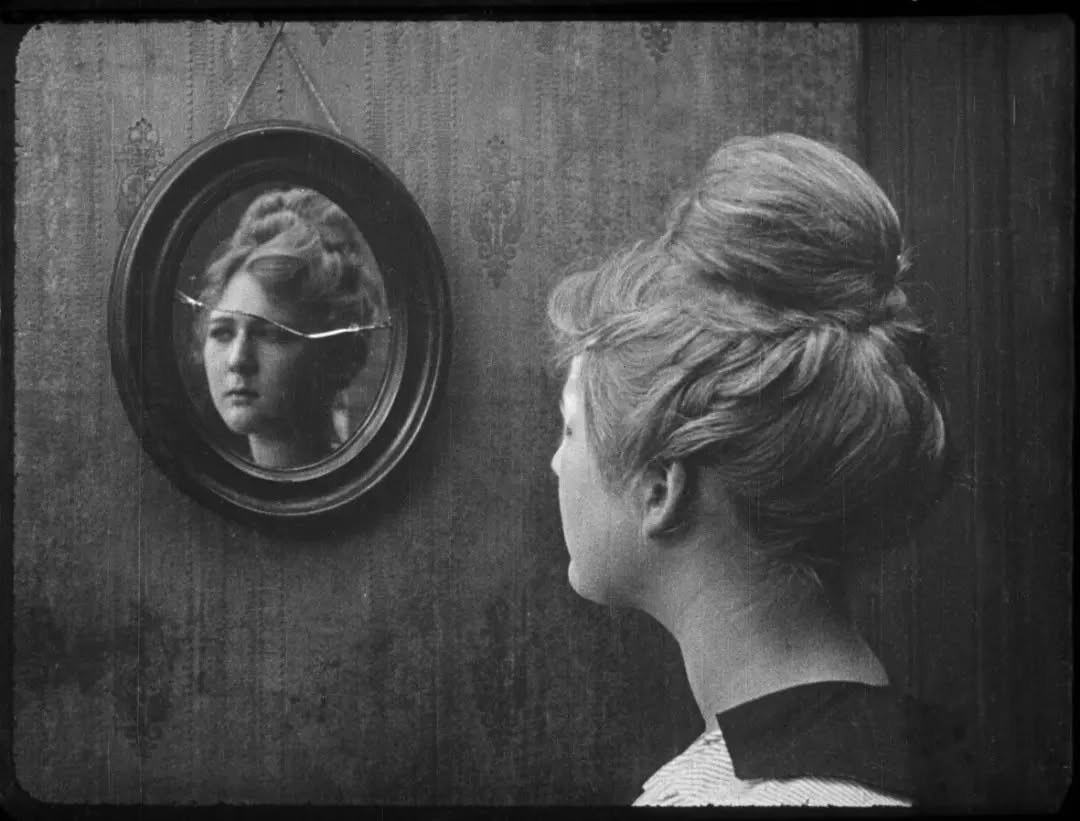A fellow creator asked during a coffee chat a week ago, and I stopped mid-sip. This one should have been easy... For people, obviously. But it lingered longer than it should have, because the real answer was more complicated.
"We shape our tools, and thereafter they shape us." Marshall McLuhan warned us of this in 1964. I just didn't expect the reshaping to be so literal.
I started noticing it six months ago. I opened a blank document to write something. Maybe a recent discussion that shifted my perspective, or a book that troubled me. But before I'd even written a single word, my brain would be optimizing.
"Does this have a hook? Where's the lede? Can I make this a thread?"
The algorithm didn't merely change the way I published content; it colonized and imprinted on my creative brain and writing process before I'd even decided what I was going to say.
I now find myself thinking in platform-native formats. Not only when I'm creating content, but when I process experiences. A beautiful sunset becomes "5 mindfulness lessons from nature." An emotionally intense conversation I had with my partner becomes "What I learned about communication this week."
My life is becoming pre-processed into content before I can even live it.
The Performance of Certainty
That might be the most insidious effect—it isn't just thinking in an optimized format, it is epistemological. Real thinking is uncertain, exploratory, contradictory. Algorithmic thinking is decisive. It knows its conclusion well before it even begins because uncertainty does not perform well.
I have found myself avoiding writing about topics that I genuinely hold conflicting feelings about. Not because I did not believe it would be interesting, but because conflict does not convert. The algorithm cares about a strong stance, clear takeaways, and definite answers. The algorithm does not care about "I don't know" or "this is complicated."
Last month, I read a blog post about friendship after thirty, how relationships change when everyone is experiencing careers, children, and aging parents. Each angle I explored felt messy, unresolved, had no clean framework, and no actionable insight.
I wanted to write my own take, but every angle felt too messy. So I didn't write anything at all. The algorithm trained me to abandon complexity in favor of clarity, even when clarity is dishonest.
The Audience I've Never Met
Here's what troubles me most: I'm optimizing my writing for an audience I've never actually met. Not my readers, I know many of them, and engage with them regularly. I'm optimizing for the algorithmic interpretation of what my audience wants, which is a very different thing.
The algorithm believes that my audience wants small wins, short bites of insight, and things they can read in one sitting if they have a short break in their working day.
But when I talk to actual people who follow my work, they tell me other things. They talk about the long reads that changed their thinking about something. They talk about the uncertain, exploratory posts that made them feel less alone in their confusion.
It feels fundamentally disconnected from what the algorithm thinks people want and what people say they value. Yet I write for the algorithm's version of my audience because that's how you get distribution.
The Things I've Stopped Writing
I used to write regularly about topics that piqued my interest. Odd observations from everyday life. Half-developed ideas on nonfiction books I was reading. My personal struggles that I hadn't digested. The writing was not always good, but it was indeed curious.
I now have a draft file of ideas I began and then abandoned because they couldn't be boiled down to a logic aligned with the platform. Reflections on grief that could never be arranged into predetermined frameworks. Thoughts about creativity that resisted bullet points. Questions about meaning that offered no action items.
I have been my own editor in a way that is arguably not better than before. I am censoring myself, not for reasons of political correctness or social reasons, but for reasons of engagement. I feel like the algorithm has taught me to preemptively censor what I write.
I am doing something a little different now. I write everything in two versions. The first version is for me: messy, exploratory, uncertain. The second version is fit for the platform: structured, optimized, performance-oriented. Sometimes I publish both. Sometimes I only publish the second version publicly, keeping the first version for myself.
In this way, I can have some creative integrity but still see and understand how attention works online. The messy version reminds me that the first version was what I actually thought, separate from what I thought would perform.
I have realized that the algorithm will change. The way platforms work will change. But the questions we ask ourselves as humans about meaning, connection, uncertainty, and growth will not change. The writers who matter in the long term are the ones exploring those questions, not just packaging them for optimal engagement.
What about you? When you sit down to write, are you discovering what you think, or are you performing what you think others want to hear? And if you've noticed the algorithm transforming your thoughts before you've even had them, what have you done about that?
Shrishti Das is a marketing storyteller and creative strategist whose name quite literally means “creation.” She began her journey in engineering before finding her calling in writing and brand building. She has worked with brands like behno NYC, Sommetbeauty, and niLuu, creating content that connects strategy with creativity. She believes the heart of marketing lies in storytelling that makes people feel understood. Outside of client work, she loves diving into editorial projects, sipping tea, and exploring the impact of stories beyond the page.
A fellow creator asked during a coffee chat a week ago, and I stopped mid-sip. This one should have been easy... For people, obviously. But it lingered longer than it should have, because the real answer was more complicated.
"We shape our tools, and thereafter they shape us." Marshall McLuhan warned us of this in 1964. I just didn't expect the reshaping to be so literal.
I started noticing it six months ago. I opened a blank document to write something. Maybe a recent discussion that shifted my perspective, or a book that troubled me. But before I'd even written a single word, my brain would be optimizing.
"Does this have a hook? Where's the lede? Can I make this a thread?"
The algorithm didn't merely change the way I published content; it colonized and imprinted on my creative brain and writing process before I'd even decided what I was going to say.
I now find myself thinking in platform-native formats. Not only when I'm creating content, but when I process experiences. A beautiful sunset becomes "5 mindfulness lessons from nature." An emotionally intense conversation I had with my partner becomes "What I learned about communication this week."
My life is becoming pre-processed into content before I can even live it.
The Performance of Certainty
That might be the most insidious effect—it isn't just thinking in an optimized format, it is epistemological. Real thinking is uncertain, exploratory, contradictory. Algorithmic thinking is decisive. It knows its conclusion well before it even begins because uncertainty does not perform well.
I have found myself avoiding writing about topics that I genuinely hold conflicting feelings about. Not because I did not believe it would be interesting, but because conflict does not convert. The algorithm cares about a strong stance, clear takeaways, and definite answers. The algorithm does not care about "I don't know" or "this is complicated."
Last month, I read a blog post about friendship after thirty, how relationships change when everyone is experiencing careers, children, and aging parents. Each angle I explored felt messy, unresolved, had no clean framework, and no actionable insight.
I wanted to write my own take, but every angle felt too messy. So I didn't write anything at all. The algorithm trained me to abandon complexity in favor of clarity, even when clarity is dishonest.
The Audience I've Never Met
Here's what troubles me most: I'm optimizing my writing for an audience I've never actually met. Not my readers, I know many of them, and engage with them regularly. I'm optimizing for the algorithmic interpretation of what my audience wants, which is a very different thing.
The algorithm believes that my audience wants small wins, short bites of insight, and things they can read in one sitting if they have a short break in their working day.
But when I talk to actual people who follow my work, they tell me other things. They talk about the long reads that changed their thinking about something. They talk about the uncertain, exploratory posts that made them feel less alone in their confusion.
It feels fundamentally disconnected from what the algorithm thinks people want and what people say they value. Yet I write for the algorithm's version of my audience because that's how you get distribution.
The Things I've Stopped Writing
I used to write regularly about topics that piqued my interest. Odd observations from everyday life. Half-developed ideas on nonfiction books I was reading. My personal struggles that I hadn't digested. The writing was not always good, but it was indeed curious.
I now have a draft file of ideas I began and then abandoned because they couldn't be boiled down to a logic aligned with the platform. Reflections on grief that could never be arranged into predetermined frameworks. Thoughts about creativity that resisted bullet points. Questions about meaning that offered no action items.
I have been my own editor in a way that is arguably not better than before. I am censoring myself, not for reasons of political correctness or social reasons, but for reasons of engagement. I feel like the algorithm has taught me to preemptively censor what I write.
I am doing something a little different now. I write everything in two versions. The first version is for me: messy, exploratory, uncertain. The second version is fit for the platform: structured, optimized, performance-oriented. Sometimes I publish both. Sometimes I only publish the second version publicly, keeping the first version for myself.
In this way, I can have some creative integrity but still see and understand how attention works online. The messy version reminds me that the first version was what I actually thought, separate from what I thought would perform.
I have realized that the algorithm will change. The way platforms work will change. But the questions we ask ourselves as humans about meaning, connection, uncertainty, and growth will not change. The writers who matter in the long term are the ones exploring those questions, not just packaging them for optimal engagement.
What about you? When you sit down to write, are you discovering what you think, or are you performing what you think others want to hear? And if you've noticed the algorithm transforming your thoughts before you've even had them, what have you done about that?
Shrishti Das is a marketing storyteller and creative strategist whose name quite literally means “creation.” She began her journey in engineering before finding her calling in writing and brand building. She has worked with brands like behno NYC, Sommetbeauty, and niLuu, creating content that connects strategy with creativity. She believes the heart of marketing lies in storytelling that makes people feel understood. Outside of client work, she loves diving into editorial projects, sipping tea, and exploring the impact of stories beyond the page.

.jpeg)


